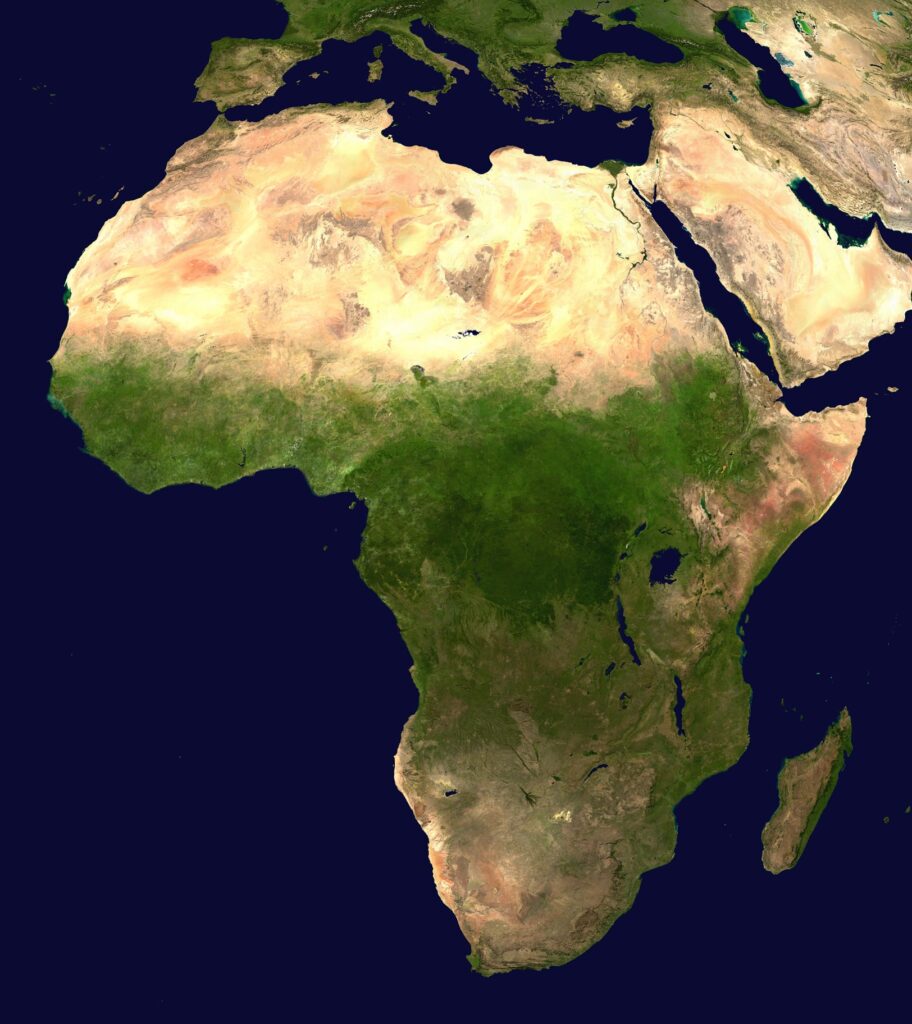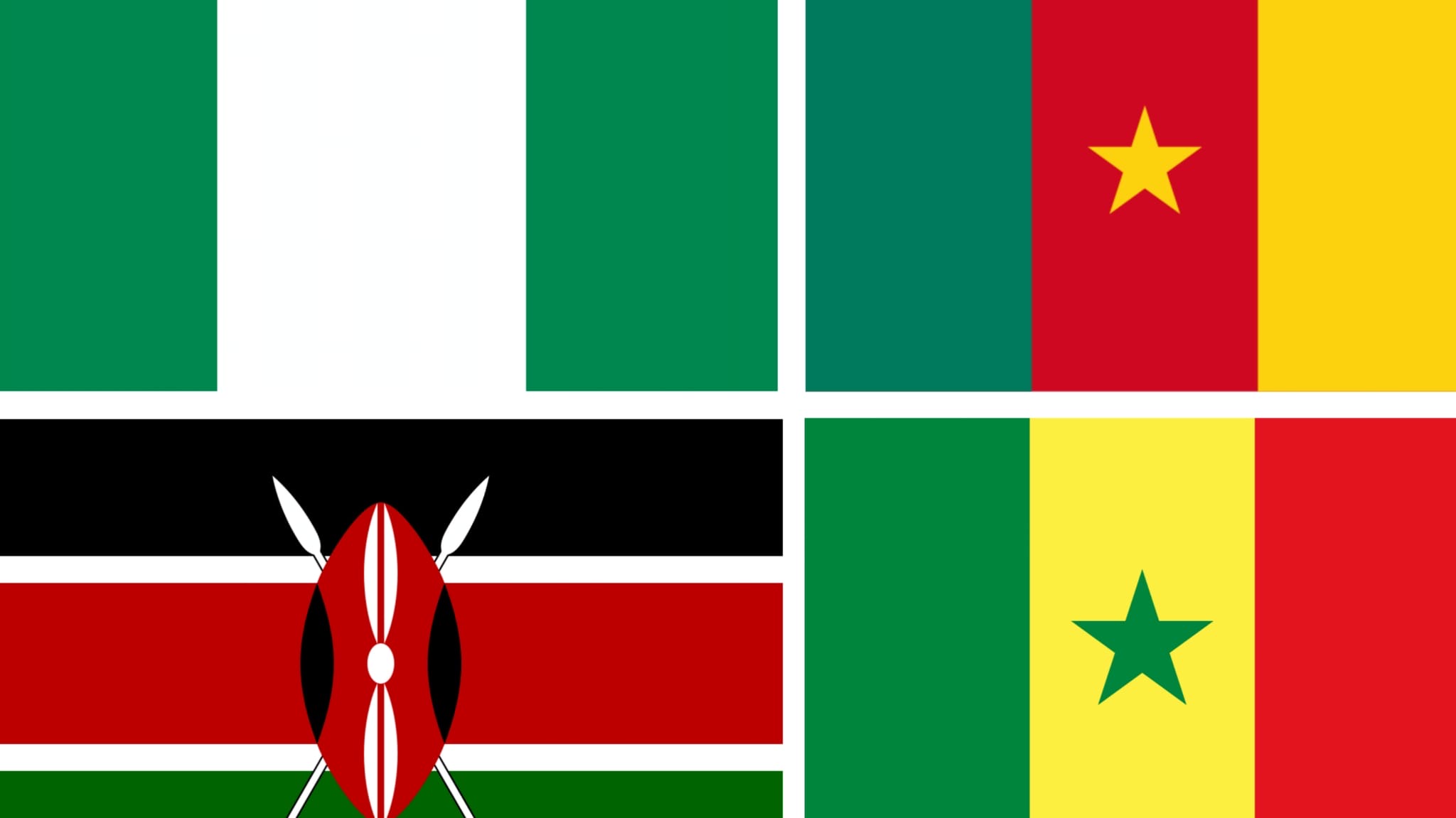When African nations began gaining independence in the mid-20th century, many saw renaming as an important act of reclaiming identity. Countries such as the Gold Coast became Ghana (1957), Upper Volta became Burkina Faso (1984), and French Sudan became Mali (1960), all in a bid to restore indigenous pride.
However, not all states chose to abandon their colonial names. Some retained them due to global recognition, deep geographical links, or because the names were already widely accepted. Below is a look at African countries that kept their colonial-era names, with details on their independence year and colonial rulers.
Nigeria
Nigeria, Africa’s most populous country and one of its largest economies, was a key British colony in West Africa. Its name, however, was coined by a British journalist rather than drawn from indigenous origins.
Colonial Name: Nigeria (from ‘Niger Area,’ coined by Flora Shaw in 1897)
Colonizer: Britain
Independence: October 1, 1960
Kenya
Kenya, home to rich wildlife reserves and diverse ethnic groups, was a British colony that became a central hub of East Africa. Its name is tied to its highest peak, Mount Kenya.
Colonial Name: Kenya (derived from Mount Kenya, from Kikuyu ‘Kirinyaga’)
Colonizer: Britain
Independence: December 12, 1963
Uganda
Uganda, often called the ‘Pearl of Africa,’ was named after the Buganda Kingdom, one of its most influential pre-colonial states. The British mispronounced Buganda as Uganda, and the name stuck.
Colonial Name: Uganda (from Buganda Kingdom)
Colonizer: Britain
Independence: October 9, 1962
Cameroon
Cameroon’s name dates back to Portuguese explorers who discovered a river teeming with prawns and named it Rio dos Camarões. The territory later passed through German, French, and British control.
Colonial Name: Cameroon (from Portuguese ‘Rio dos Camarões’ – River of Prawns)
Colonizer: Germany, Britain & France
Independence: 1 January, 1960/ 1 October, 1961
Gabon
Gabon, situated along the Atlantic coast of Central Africa, derived its name from the Portuguese word for cloak, describing the estuary’s shape. It remained a French colony until independence.
Colonial Name: Gabon (from Portuguese ‘Gabão’ – cloak-shaped estuary)
Colonizer: France
Independence: August 17, 1960

Senegal
Senegal, with its strategic location on the Atlantic coast, was a major French colonial center. Its name comes from the Senegal River, a lifeline for the country’s people.
Colonial Name: Senegal (from Senegal River, Wolof origin, adapted by traders)
Colonizer: France
Independence: April 4, 1960
Chad
Chad, a landlocked nation in Central Africa, took its name from Lake Chad, one of Africa’s largest freshwater bodies. The French adopted the local Kanuri term ‘Tshad,’ meaning lake.
Colonial Name: Chad (from Lake Chad, ‘Tshad’ meaning ‘lake’ in Kanuri)
Colonizer: France
Independence: August 11, 1960
Niger
Niger, a Sahelian country named after the Niger River, was under French control until 1960. Like Nigeria, its colonial name was based on a major waterway.
Colonial Name: Niger (from River Niger, adopted by French)
Colonizer: France
Independence: August 3, 1960
Togo
Togo, a narrow stretch of land along the Gulf of Guinea, derived its name from a Ewe expression meaning ‘water shore.’ The Germans first adopted it during colonization, followed later by the French.
Colonial Name: Togo (from Ewe ‘to’ = water, ‘go’ = shore, adapted by Germans/French)
Colonizer: Germany, France
Independence: April 27, 1960
Tanzania
Tanzania emerged as a union between Tanganyika and Zanzibar in 1964. Both territories had colonial histories under Germany, Britain, and Oman. Their merger created a new name, but one built from colonial terms.
Colonial Name: Tanganyika (German/British), Zanzibar (Arab/British). Union formed Tanzania.
Colonizer: Germany, Britain, Oman
Independence: 1961/1963; Union 1964
Some Reasons Why These Countries Might Have Their Colonial Names
- Geographical Recognition: Names tied to rivers, lakes, or mountains (Nigeria, Niger, Chad, Senegal, Kenya) felt neutral and descriptive rather than foreign impositions.
- International Acceptance: By the 1960s, these names were already established in diplomacy, trade, and maps.
- National Unity: Some leaders feared that changing names could reignite ethnic divisions, so they kept the colonial label to maintain cohesion.
While renaming was a powerful act of reclaiming African identity, not every country felt it necessary. For nations like Nigeria, Kenya, Uganda, and Cameroon, retaining colonial names was more about continuity, unity, and global recognition. These names, though European in origin, have since been indigenized and now carry African meaning and pride.
